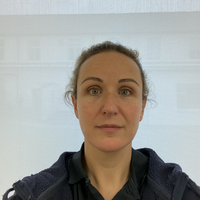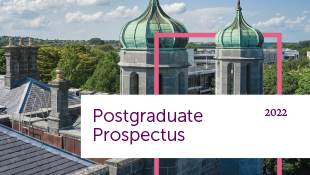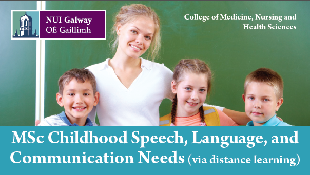-
Courses

Courses
Choosing a course is one of the most important decisions you'll ever make! View our courses and see what our students and lecturers have to say about the courses you are interested in at the links below.
-
University Life

University Life
Each year more than 4,000 choose University of Galway as their University of choice. Find out what life at University of Galway is all about here.
-
About University of Galway

About University of Galway
Since 1845, University of Galway has been sharing the highest quality teaching and research with Ireland and the world. Find out what makes our University so special – from our distinguished history to the latest news and campus developments.
-
Colleges & Schools

Colleges & Schools
University of Galway has earned international recognition as a research-led university with a commitment to top quality teaching across a range of key areas of expertise.
-
Research & Innovation

Research & Innovation
University of Galway’s vibrant research community take on some of the most pressing challenges of our times.
-
Business & Industry

Guiding Breakthrough Research at University of Galway
We explore and facilitate commercial opportunities for the research community at University of Galway, as well as facilitating industry partnership.
-
Alumni & Friends

Alumni & Friends
There are 128,000 University of Galway alumni worldwide. Stay connected to your alumni community! Join our social networks and update your details online.
-
Community Engagement

Community Engagement
At University of Galway, we believe that the best learning takes place when you apply what you learn in a real world context. That's why many of our courses include work placements or community projects.
Cardiac Rehabilitation (PgCert)
Course Overview
This Online-Course is ineligible for student study visa or ILEP, but international students may undertake this programme remotely.
This postgraduate qualification equips students with the knowledge and skills required to make meaningful contributions to cardiac rehabilitation practice. This course includes disease-specific theory and practice components together with a strong focus on research, integrated care approaches, and evidence-informed innovation in rehabilitative service delivery. Whilst the main focus is cardiovascular and pulmonary disease prevention and rehabilitation, key learning outcomes achieved apply to chronic disease management more widely.
The course runs from January to May each year and is delivered online. Structured weekly directed study is coupled with a schedule of group-based lectures, tutorials, and interactive workshops. These group-based sessions are delivered in real-time via live sessions and are timetabled for Thursdays and Fridays (3 pm – 8 pm) with occasional Saturdays (10 am – 3 pm). After successful completion of this programme students can continue their education to the master's level and apply for MSc Cardiovascular and Pulmonary Rehabilitation or MSc Preventive Cardiology.
Unique features of this programme include:
- Flexible learning: Online delivery using scheduled tutorials and workshops coupled with directed study enables students to simultaneously maintain professional roles in clinical practice or manage other commitments whilst completing their studies.
- Delivered in partnership with the National Institute for Prevention and Cardiovascular Health (NIPC): This partnership enables an exceptional opportunity for students to interact with leading experts as well as engage in cutting-edge research and further opportunities in cardiovascular and pulmonary rehabilitation.
- Interdisciplinary expert teaching faculty: Students from a variety of backgrounds from all over the world interact with international leaders and clinical specialists from medicine, nursing, nutrition, exercise, behavioural medicine, and public health.
The course addresses the latest evidence-based, implementation of best-practice guidelines and healthcare policy, behavioural change strategies, lifestyle approaches to risk factor modification, psychosocial health, and medical management of risk factors including hypertension, dyslipidaemia, diabetes mellitus, obesity, and smoking. Outcome measures, health technology, and innovation in service design also feature strongly to enable programme uptake and high-quality delivery. Whilst focusing on cardiovascular and pulmonary populations the content aligns strongly with the management of non-communicable diseases.
Applications and Selections
Applications are made online via the University of Galway Postgraduate Applications System.
Who Teaches this Course
This course is delivered by an interdisciplinary teaching faculty of leading experts and clinical specialists in cardiovascular and pulmonary rehabilitation. The Programme Board comprises of:
Dr Jennifer Jones
Programme Director and Specialist Physiotherapist in Cardiovascular Prevention and Rehabilitation
Professor Catriona Jennings
Nurse Specialist and Senior Researcher, University of Galway
Professor Molly Byrne
Professor of Health Psychology in the School of Psychology, University of Galway
Dr Lisa Hynes
Health Psychologist and Head of Health Programmes, Croí Heart and Stroke Centre
Dr Susan Connolly
Consultant Cardiologist, Clinical Lead in Cardiovascular Prevention and Rehabilitation
Ms Suzanne Seery
Senior Specialist Dietitian in Cardiovascular Health
Ms Karen Cradock
Specialist Physiotherapist in Cardiac Rehabilitation; Past President of the Irish Association of Cardiac Rehabilitation
Ms Wendy Yell
Specialist Occupational Therapist in Cardiac Rehabilitation
Professor Robyn Gallagher
Expert in Digital Health and Current President of the International Council of Cardiovascular Prevention and Rehabilitation
Ms Noeleen Fallon
Specialist Nurse in Cardiovascular Prevention and Rehabilitation, Past President of the Irish Association of Cardiac Rehabilitation (IACR)
Dr Yvonne Finn
Lecturer in Clinical Medicine, University of Galway
Professor Derek O’Keeffe
Consultant Endocrinologist and Expert in Diabetes and Technology & Innovation
Prof Francis Finucane
Consultant Endocrinologist, UHG and Specialist Lead for Endocrinology, Saolta Group
Requirements and Assessment
Key Facts
Entry Requirements
Successful applicants will possess at least a Second Class Honours, Grade 1 degree (or equivalent) in a health care discipline or related subject area (e.g., medicine, nursing, physiotherapy, dietetics, sport and exercise science, clinical or health psychology, pharmacy, health promotion, public health etc). For those who do not hold a primary degree at the required level, consideration will also be given to applicants with relevant work experience, background knowledge and skills.
Overseas students will need to satisfy the University’s English Language requirement of IELTS 6.5 or above (or equivalent).
Additional Requirements
Recognition of Prior Learning (RPL)
Duration
5 months, part-time
Next start date
January 2026
A Level Grades ()
Average intake
25
QQI/FET FETAC Entry Routes
Closing Date
For Entry January 2026, closing date = 8 December 2025
NFQ level
Mode of study
Online Learning
ECTS weighting
30
Award
CAO
Course code
PGC-CRB | Mode of study: Online
Course Outline
The Postgraduate Certificate in Cardiac Rehabilitation involves students participating in a 30 ECTS Level 9 module that runs from the first week of January to the end of May each year. This core teaching is delivered with scheduled virtual tutorials and workshops taking place typically 1-2 Thursday/Friday evenings (3 pm -8 pm) and 1 Saturday per month (10 am – 3 pm). Between these sessions students are expected to complete directed study tasks, extended learning and complete the assessments associated with this module.
- Unit 1: Evidence, Guidelines and Practice of Cardiac Rehabilitation
- Unit 2: Health Behaviour Change
- Unit 3: Lifestyle and Medical Risk Factor Management in Cardiac Rehabilitation
- Unit 4: Current Perspectives and Future Advances in Cardiac Rehabilitation
Each Unit above has an associated assessment which is all in the form of essays or equivalent, e.g., written assignments, poster presentations, and case reviews. There are no exams—coursework accounts for 100% of the assessment.
Why Choose This Course?
Career Opportunities
There is an array of employment opportunities in public health, health promotion, healthcare management, academic and research settings, and the pharmaceutical industry. Graduates of the course with a clinical background will also specifically benefit from career advancement in the speciality of cardiac rehabilitation as well as cardiovascular health more broadly.
Who’s Suited to This Course
Learning Outcomes
Transferable Skills Employers Value
Work Placement
Study Abroad
Related Student Organisations
Course Fees
Fees: EU
Fees: Tuition
Fees: Student levy
Fees: Non EU
For 26/27 entrants, where the course duration is greater than 1 year, there is an inflationary increase approved of 1.8% per annum for continuing years fees.
Postgraduate students in receipt of a SUSI grant – please note an F4 grant is where SUSI will pay €4,000 towards your tuition (2025/26). You will be liable for the remainder of the total fee. A P1 grant is where SUSI will pay tuition up to a maximum of €6,270. SUSI will not cover the student levy of €140.
Note to non-EU students: learn about the 24-month Stayback Visa here.
Find out More
Programme Director:
Dr Jennifer Jones
Senior Lecturer in Preventive Medicine and Cardiovascular Health,
College of Medicine, Nursing and Health Sciences,
University of Galway
Director of Education and Training,
National Institute for Prevention and Cardiovascular Health (NIPC).
T: +353 91 893 299
E: jennifer.jones@universityofgalway.ie
What Our Graduates Say

Ruth Coleman | Senior Physiotherapist, Department of Health
I decided to undertake the Cert to ensure that clinically I was working to the highest standards of evidence available and that our service was optimised to ensure our patients met their goals also. While it was challenging to get back into the domain of research and online education, I really enjoyed the course and felt that we received a broad spectrum of knowledge and experiences while also meeting my objectives. I look forward to bringing in changes to how I work with the confidence the course has provided me with and am happy to recommend it to all professionals working or hoping to work in the area.
You may also be interested in...
Other programmes also offered within this suite of courses in Preventive Medicine and Cardiovascular Health include:


















